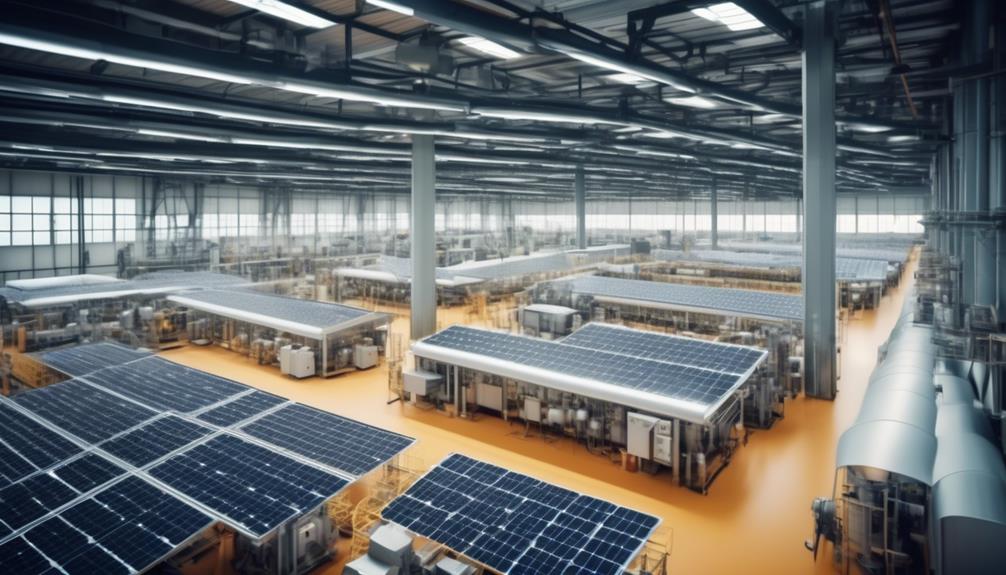In the dynamic world of industrial operations, the quest for efficient energy management is a journey fraught with challenges ranging from the ever-present spectre of climate change to the intricacies of shifting regulatory landscapes.
For industry leaders, the pursuit of not just compliance but excellence in energy stewardship is a reflection of foresight and a commitment to sustainable success. This evolving panorama demands a strategy that not only meets today’s needs but also anticipates tomorrow’s challenges, ensuring resilience and sustainability at the core of business operations.
With a deep-seated understanding of these complexities, our exploration into energy management is tailored to those at the helm of industry, seeking to navigate these turbulent waters with precision and strategic acumen. Recognising the nuanced pain points of regulatory compliance, competitive pressures, and the imperative for sustainable practices, this discussion serves as a compass, guiding towards a future where energy management is not just a responsibility, but a strategic advantage.
As we delve deeper, the assurance that your concerns and queries will find resolution becomes evident, inviting you to engage with confidence and anticipation.
Energy Management Challenges in Industries
Amidst the imperative of improving energy efficiency in the industrial sector, the challenges of energy management loom large, necessitating a comprehensive and strategic approach for sustainable solutions. The industrial sector’s energy demand and consumption present intricate hurdles in achieving energy efficiency. Implementing energy management systems designed to optimise energy consumption is pivotal.
Furthermore, the energy transition towards net-zero emissions necessitates a paradigm shift in industrial energy management.
One of the critical challenges lies in aligning energy management plans with net-zero emissions targets. This requires building a robust roadmap that integrates energy efficiency into the industrial processes, ensuring that energy management becomes an integral part of the industrial operational framework. Access to data for building energy plans and governance discipline are crucial for successful roadmap implementation. Moreover, coordination across departments and market and production volumes pose significant hurdles in developing a successful energy management roadmap.
Flexibility, goal alignment, and access to data play a vital role in addressing these challenges and transitioning to net-zero emissions in industries. Therefore, a meticulous and coordinated approach is imperative to surmount the energy management challenges in the industrial sector.
Benefits of Strategic Energy Planning
Strategic energy planning offers a multitude of benefits for industries seeking to enhance their energy management practices and sustainability efforts. By focusing on energy efficiency, industries can reduce energy consumption, leading to cost savings and contributing to the global effort to combat climate change.
Investment in renewable energy and energy performance improvements not only reduces carbon emissions but also enhances energy security. Moreover, transitioning towards net zero energy consumption not only aligns with environmental goals but also positively impacts the overall quality of life.
Embracing strategic energy planning can also drive social and economic development, creating job opportunities and fostering innovation within the energy sector. Ultimately, the benefits of strategic energy planning extend beyond individual industries, positively impacting society as a whole.
Key Factors for Effective Energy Control
The implementation of effective energy control in industrial settings requires a comprehensive understanding of key factors that influence energy usage and management. Addressing these factors is essential for achieving sustainability goals and reducing environmental impact. The table below outlines the critical components for effective energy control in industrial settings.
| Key Factors | Description |
|---|---|
| Energy Consumption | Monitoring and optimising energy consumption through efficient processes and technologies. |
| Real Estate | Utilising space for energy-efficient operations, building design, and renewable energy installations. |
| Energy Infrastructure | Investing in modern energy infrastructure to support energy-efficient systems and operations. |
| Carbon Emissions | Implementing strategies to reduce carbon emissions through cleaner energy sources and efficient processes. |
| Environmental Impact | Assessing and mitigating the overall environmental impact of the energy system and industrial operations. |
These key factors play a pivotal role in aligning energy control with Sustainable Development goals, driving operational efficiency, and reducing carbon emissions. By addressing these factors, industrial sectors can work towards achieving net-zero emissions and making a substantial contribution to environmental sustainability.
Optimising Energy Consumption Techniques
To achieve optimal energy consumption in industrial settings, it is imperative to implement efficient processes and technologies that monitor and optimise energy usage.
In today’s energy-intensive sector, optimising energy consumption techniques is crucial for businesses aiming to reduce their energy intensity and reliance on fossil fuels.
One of the most effective techniques for optimising energy consumption is the implementation of advanced energy management systems. These systems enable real-time monitoring of energy use, allowing for immediate adjustments and identification of areas for improvement.
Additionally, the integration of energy-efficient technologies such as LED lighting, smart HVAC systems, and energy-efficient machinery can significantly contribute to reducing overall energy consumption.
Furthermore, conducting regular energy audits and assessments helps in identifying energy wastage and areas where consumption can be optimised.
By adopting these techniques, businesses can not only minimise their environmental impact but also achieve cost savings through reduced energy expenses.
Implementing Bespoke Energy Solutions
What are the key considerations for industries when implementing bespoke energy solutions tailored to their specific needs and challenges?
When implementing bespoke energy solutions, industries must consider several key factors to ensure the effectiveness and efficiency of their energy management. Some of the crucial considerations include:
- Integration of specific goals: Customised energy solutions play a pivotal role in helping industries achieve their net-zero emissions targets by integrating specific goals into decision-making at all levels.
- Access to data: Implementing bespoke energy solutions provides industries with access to the necessary data for building energy plans, enabling effective tracking and planning.
- Coordination across departments: Successful roadmap implementation requires coordination across different departments within a corporation to address the challenges associated with building and implementing bespoke energy solutions.
Global Energy is increasingly reliant on public and private sectors to rethink their energy management plans. The views expressed in this article are aimed at facility managers and business models to recalibrate their energy sources towards more sustainable and efficient practices.
Future-Proofing Industry Energy Management
As industries continue to implement bespoke energy solutions tailored to their specific needs and challenges, future-proofing their energy management becomes increasingly imperative.
Achieving net-zero emissions and reducing energy consumption are ambitious targets that require proactive measures. Emerging economies, in particular, face the dual challenge of meeting growing energy demand while minimising their contribution to global emissions.
Future-proofing industry energy management involves developing a robust roadmap with flexible governance, aligned with net-zero emission goals. Access to data is crucial for building energy plans, making analytical planning less burdensome for operations teams. Coordination across different departments within the corporation and governance discipline are essential for successful roadmap implementation.
Moreover, navigating geopolitical risks, supply chain challenges, and new risks in energy infrastructure is critical in the energy transition. Future-proofing industry energy management also involves addressing the evolving landscape of oil demand and integrating net-zero emission goals into decision-making at all levels.


















